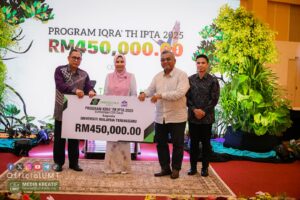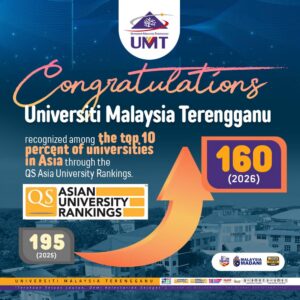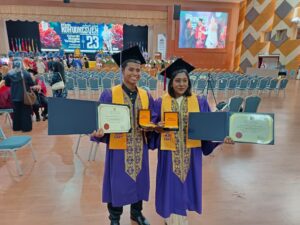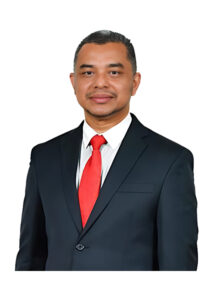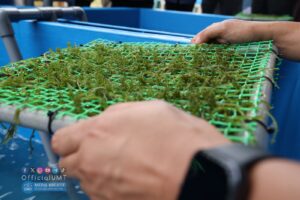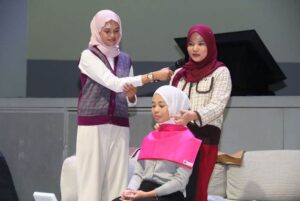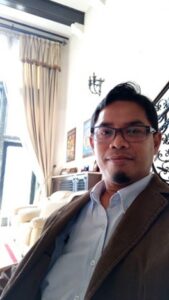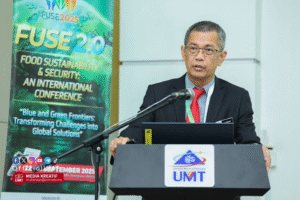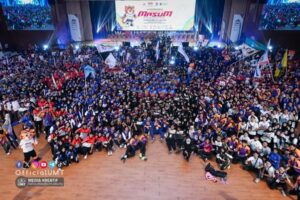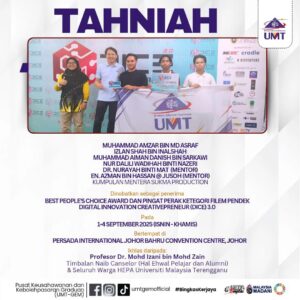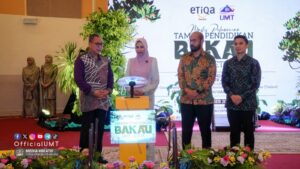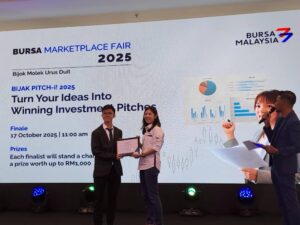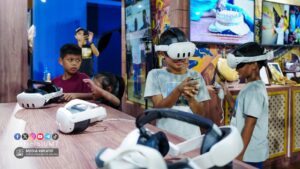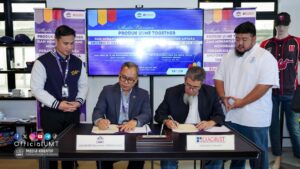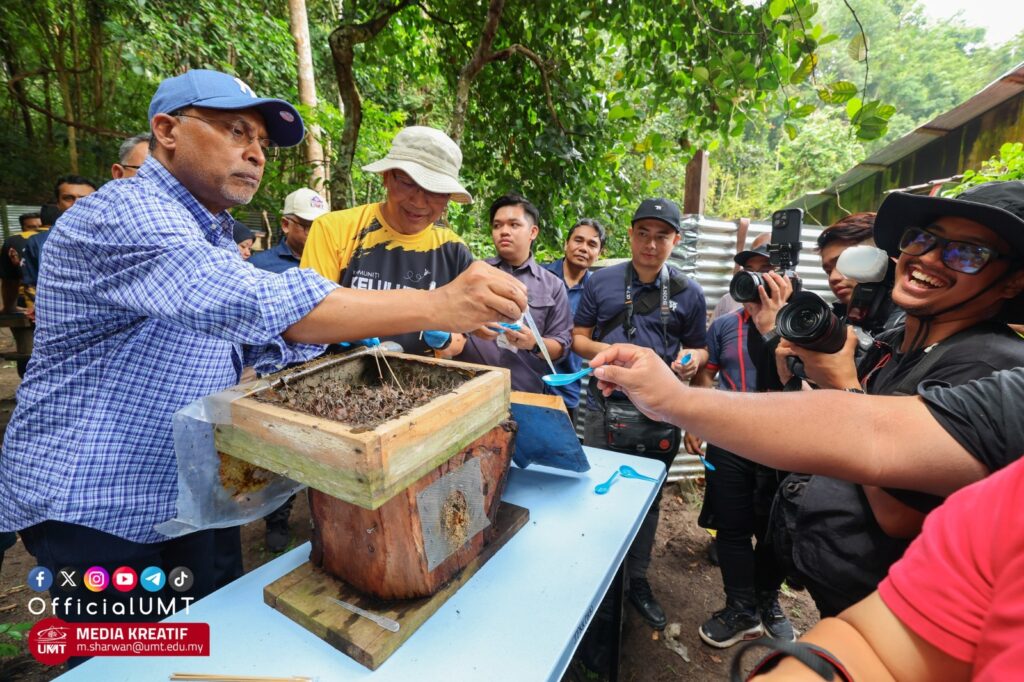
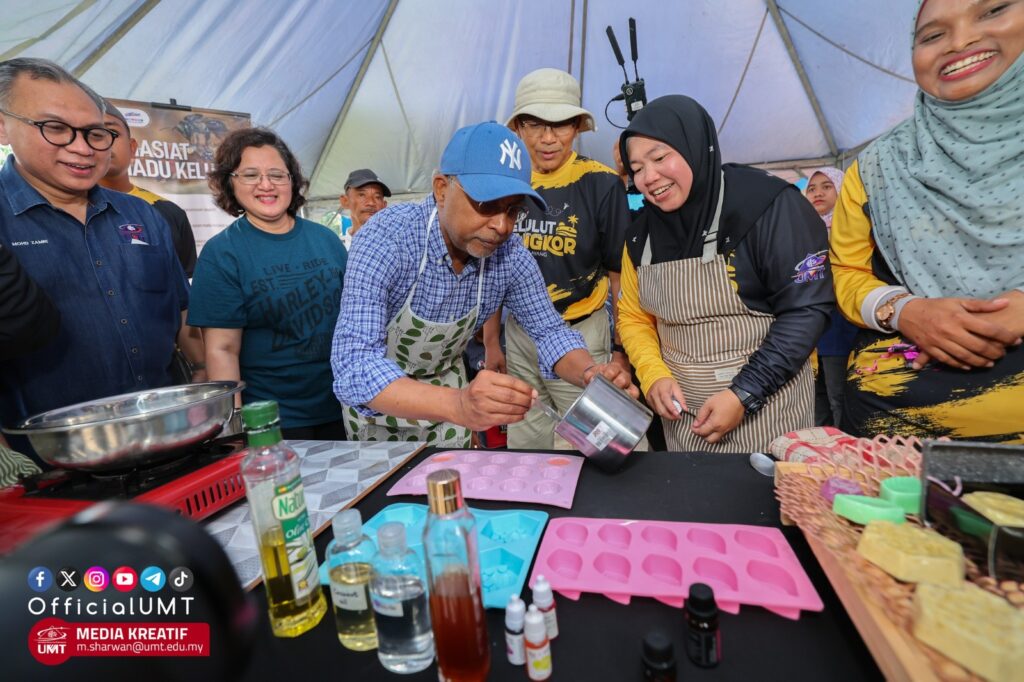
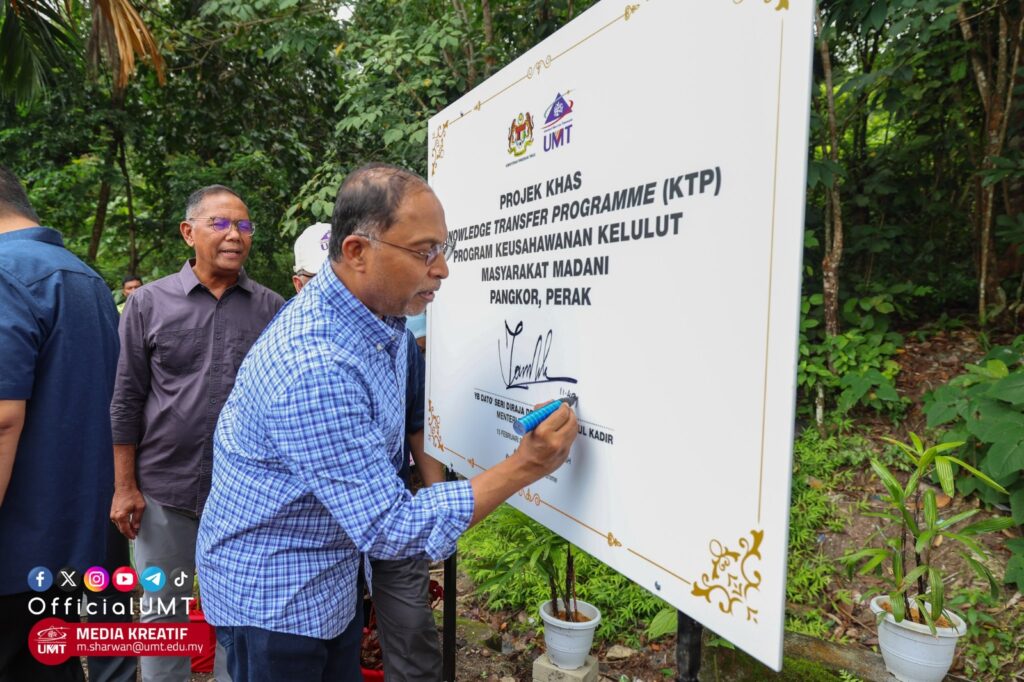
UMT’S KNOWLEDGE TRANSFER PROGRAMME EMPOWERS PANGKOR COMMUNITY
Monday, 17/02/2025
Share This Article :
PANGKOR, 15 February 2025 – Universiti Malaysia Terengganu (UMT) has continued to strengthen its role in transferring knowledge to the communities through its latest project, the Stingless Bee Entrepreneurship Knowledge Transfer Programme for Pangkor Madani Community.
The launching ceremony at Kampung Tengah, Pangkor, Perak, was officiated by Higher Education Minister Dato’ Seri Diraja Dr. Zambry Abd Kadir. The ceremony was attended by the local community and several government agency representatives.
According to Dr. Zambry, the project is part of the effort by the ministry to ensure the universities become centres for transferring high impact knowledge that will benefit the community.
He stressed that universities’ expertise and facilities should be fully utilized in line with the main focus of the ministry, which is to empower the communities’ economy through knowledge sharing and transfer programmes.
“This project will not only create economic opportunities but also increase the community’s awareness of the importance of protecting the environment for the sustainability of Pangkor ecosystem. It is in line with our aspiration to make universities centres of innovation and agents of social development,” said Dr. Zambry in his speech during the launching ceremony.
Meanwhile, UMT Vice Chancellor Professor Ir. Ts. Dr. Mohd Zamri Ibrahim said the project emphasizes five main elements, namely fast implementation, high impact, affordability, marketability, and sustainability.
UMT will carry out continuous monitoring and evaluation to ensure the success of the project and strengthen cooperation with its strategic partners.
As part of the community empowerment initiative, UMT also involved its students in a community service programme. A total of 100 final year students from the tourism programme participated in the MICE (Meeting, Incentive, Conference, Exhibition) programme in Pangkor to gain more experience in community development.
In addition, Dr. Zambry also announced the plan to set up a one-stop centre to serve as a platform for showcasing community products and introducing Pangkor’s uniqueness and heritage.
Dr. Zambry also highlighted other potential knowledge transfer projects, such as mud crab and soft-shell crab project, turtle conservation project, ecotourism project, and pufferfish project, that can empower the community of Pangkor and increase the competitiveness of Pangkor’s tourism sector.
The project serves a proof of a strategic collaboration between UMT and the Ministry of Higher Education for the purpose of empowering the communities through high impact innovations and knowledge transfer programmes and providing sustainable benefits to local communities as well as contributing towards conservation of sustainable environment.
UMT’s Background
Universiti Malaysia Terengganu (UMT) began as Fisheries and Marine Science Centre, Universiti Pertanian Malaysia (UPM), in 1979 before being upgraded to become UPM’s branch campus in 1996. In 1999, it became Kolej University Terengganu (KUT), then Kolej Universiti Sains dan Teknologi Malaysia (KUSTEM) in 2001. It was renamed as UMT in 2007. The university is now renowned for its research in oceanography, biodiversity, and marine biotechnology and plays its role in University’s Social Responsibilities (USR). With its strategic location on the coast of the South China Sea, UMT continues to progress in academic, research, and community development endeavours in line with the country’s aspirations.
Published by:
Corporate Communications Office
Universiti Malaysia Terengganu

